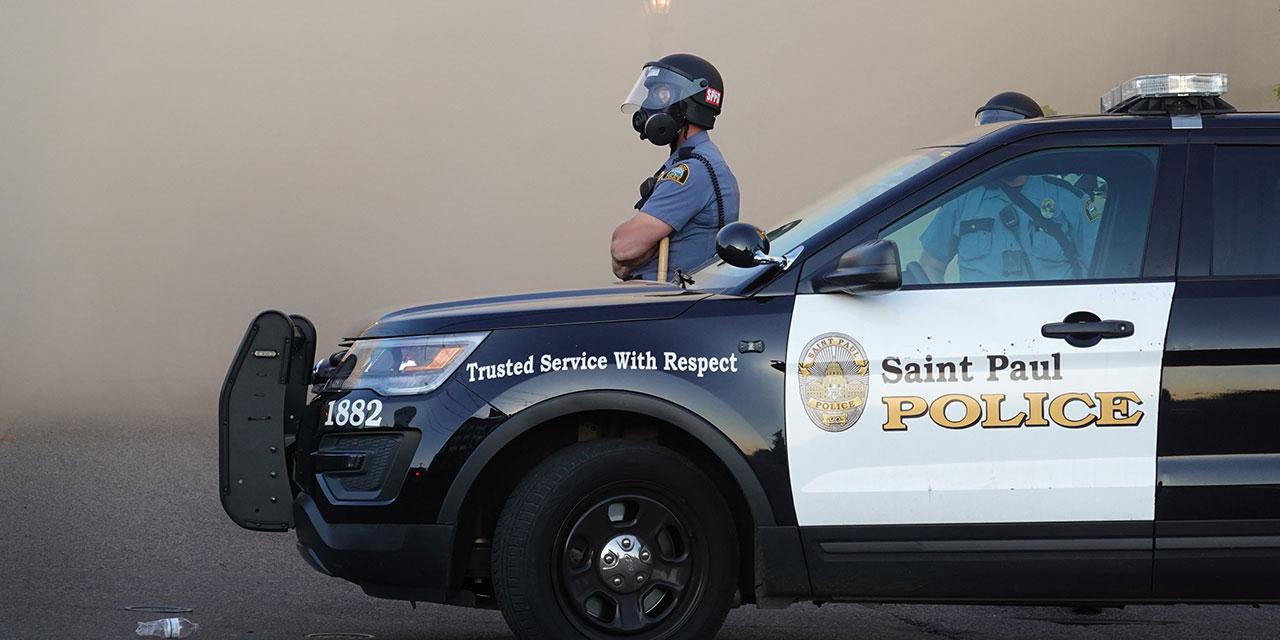A police officer stops a car for having expired registration tags on its license plate. After talking with the driver, the only person in the car, the officer confirms that the car’s owner failed to update the registration. The driver is a convicted felon, with multiple priors for robbery and drug trafficking. The cop spots a gun under the driver’s seat and a half kilo of heroin in the back seat. But the driver is not cited for the expired tags and not arrested for being a felon in possession of a firearm or for drug trafficking. Instead, the police officer tells the driver to get the car’s registration updated—that is, if he feels like it—and to have a nice day.
If this were the 1920s, the presumption would be that the police department had become corrupt and was on the take from criminals. But in St. Paul, Minnesota, the police department would simply be implementing the new policy of the city’s chief prosecutor, Ramsey County Attorney John Choi.
Finally, a reason to check your email.
Sign up for our free newsletter today.
Choi has unilaterally decided that his office will not prosecute felony cases arising from “non-public-safety” traffic stops by the police. Such stops include expired license-plate tags, cracked windshields, headlights and brake lights that are out, and other motor-vehicle infractions, all of which are already not prosecuted. (Philadelphia is embarking on a similar experiment, with the city council passing a bill that does away with police stops for “secondary offenses.”) Choi also will not prosecute felonies arising from consensual searches after such stops. Even if a police officer lawfully stops a vehicle, lawfully identifies a motor-vehicle violation, and lawfully discovers that somebody in the car is engaging in a felony, that criminal will not be prosecuted. The policy mentions that public-safety exceptions could be applied in “limited circumstances,” but leaves these undefined.
Law enforcement blasted Choi’s decision. The Minnesota Police and Peace Officers Association put out a statement: “Ramsey County residents be warned: those that break the law won’t even get a slap on the wrist—they’ll get a high-five from the county attorney and be left to commit more, and more serious, offenses.”
Choi’s reason for not enforcing the law, in the Minneapolis Star-Tribune’s characterization, is a goal of “reducing racial disparities in the criminal justice system.” Approximately 16 percent of St. Paul residents are black. About 46 percent of traffic stops for equipment violations in St. Paul involve black drivers, though the police actually issued a citation to the black drivers only 19 percent of the time. Of course, these discrepancies ignore the difference between the general racial composition of the city and the racial composition of those committing crimes. According to Choi’s logic, racial disparities in the criminal-justice system will be rectified only when exactly 16 percent of St. Paul’s traffic stops involve black drivers. On this logic, should police in, say, Hialeah, Florida, make sure that they stop Hispanic drivers 96 percent of the time?
Apportioning traffic stops equitably by race can be done in a few ways. The path chosen by Choi is to let the guilty walk free. The alternative is simply to increase the number of stops of drivers of other races until the preferred racial balance is achieved, which would involve the St. Paul police randomly stopping white, Hispanic, Asian, and other drivers for no reason—in other words, pursuing the innocent. Of course, a better option exists: let the police stop drivers who are not complying with the law, and let them arrest motorists engaged in criminal activity—regardless of race.
To understand the implications of Choi’s choice, consider the mass shooting that took place in downtown St. Paul on October 10. Three men in a crowded bar opened fire on the patrons, wounding 14 and killing one. If police had stopped those three men on the way to the bar, and discovered their guns, under Choi’s policy they would likely not have been arrested. Felonies discovered during traffic stops both prevent crimes and provide evidence to solve crimes already committed; but no longer in St. Paul.
If St. Paul were enjoying unparalleled peace and tranquility, perhaps Choi could defend his strategy as removing an unnecessary law-enforcement technique. If the St. Paul police had for years been intentionally targeting black citizens, Choi might say that his policy was a restorative measure. But the St. Paul police have not been accused of anything except enforcing the law. And St. Paul recorded 34 homicides in 2020, tying with 1992 for the highest number of murders in the city’s history—though that record may not stand much longer, since 2021 is on pace to break it. Choi’s one-man authorization to commit crimes in St. Paul could not come at a worse time for this Twin City.
Photo by Scott Olson/Getty Images
